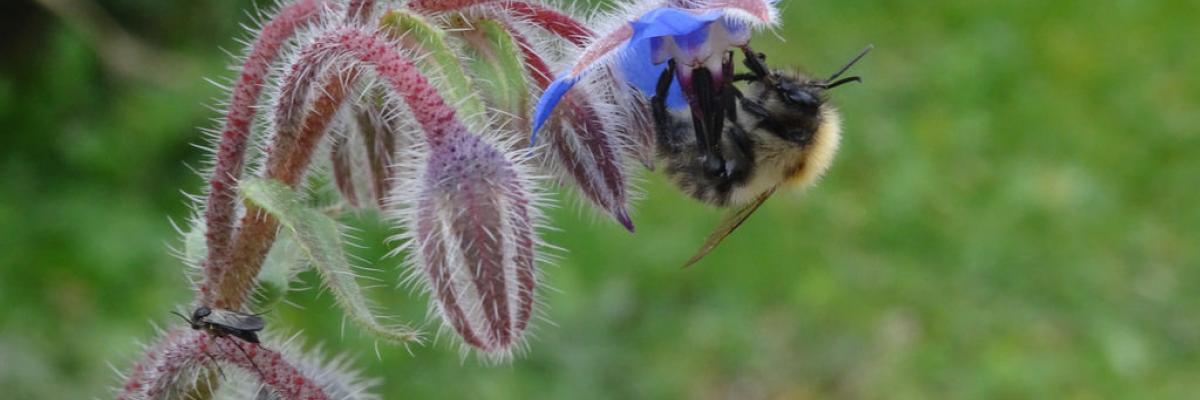
Wild Pollinator Farm Health Check
Download the PDF
The Wild Pollinator Farm Health Check is based on a model (the Pollinator
Habitat Assessment Guide) developed by the Xerces Society in the US. You can identify where you can make improvements on your farm to encourage wild pollinators and beneficial insects through scoring it on its ability to provide ‘The Big 4’; nectar/pollen (forage), nesting habitats, wintering/hibernation habitat, and low stress (e.g. pesticides / integrated farm management, IFM). After completing the form and scoring yourself points, the final output is a ‘Pollinator Support Plan’, which is essentially a map that highlights key features to retain / enhance / create.
- Wild pollinators / beneficial insects are suffering huge declines due to intensive farming and habitat loss. These include flies, beetles, moths, and wasps. They often do not fly very far (750 metres) and need connectivity and diversity of habitats.
- Their needs can be achieved without necessarily taking more land out of production and by improving the quality of the environment e.g. by defining wildlife corridors through the farm, enhancing hedgerow basal flora, and increasing floristic diversity of grass margins.
- Reducing reliance on insurance spraying (insecticide, herbicide) is expensive and creates more problems than it solves e.g. herbicide resistance and habitat loss.
- Fruit growers can aim to reduce reliance on imported solitary and bumble bees and save money.
- Farmers and growers will benefit from the presence of more natural enemies, particularly as product choice becomes more restricted.
- Farmers can share their experience and strengthen as groups, this opens up opportunities e.g. for grants and purchasing.
The author states that you are free to use the Health Check for your own purposes, but please acknowledge Worcestershire Wildlife Trust if you distribute it further.
Interested in finding out more about the Xerces Society for Invertebrate Conservation? See www.xerces.org

